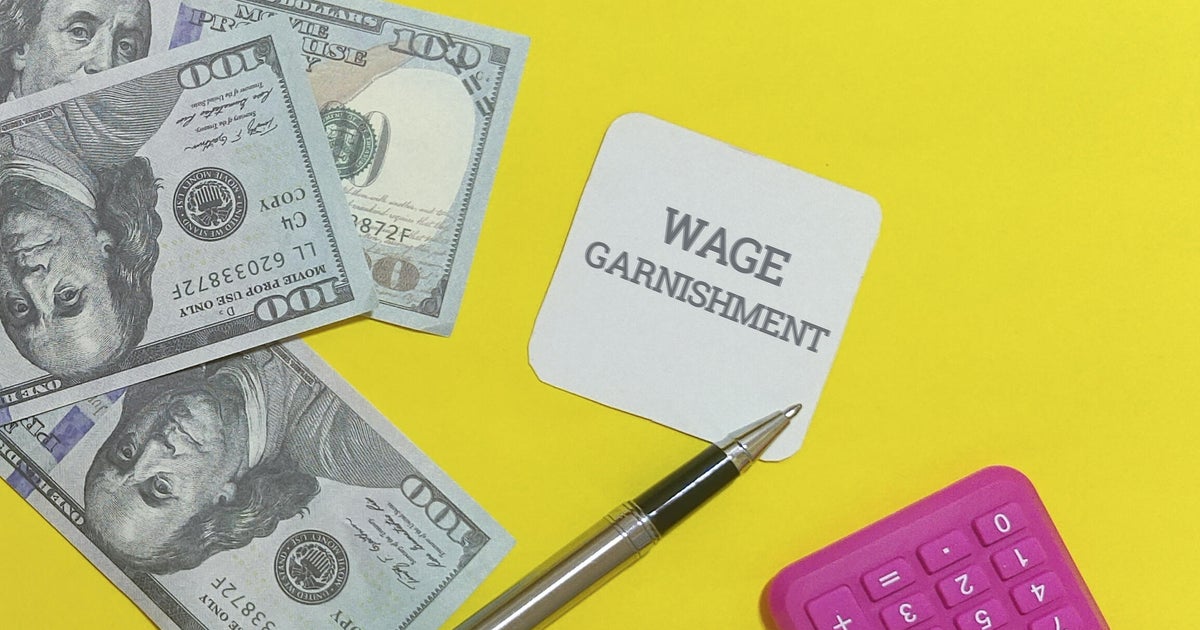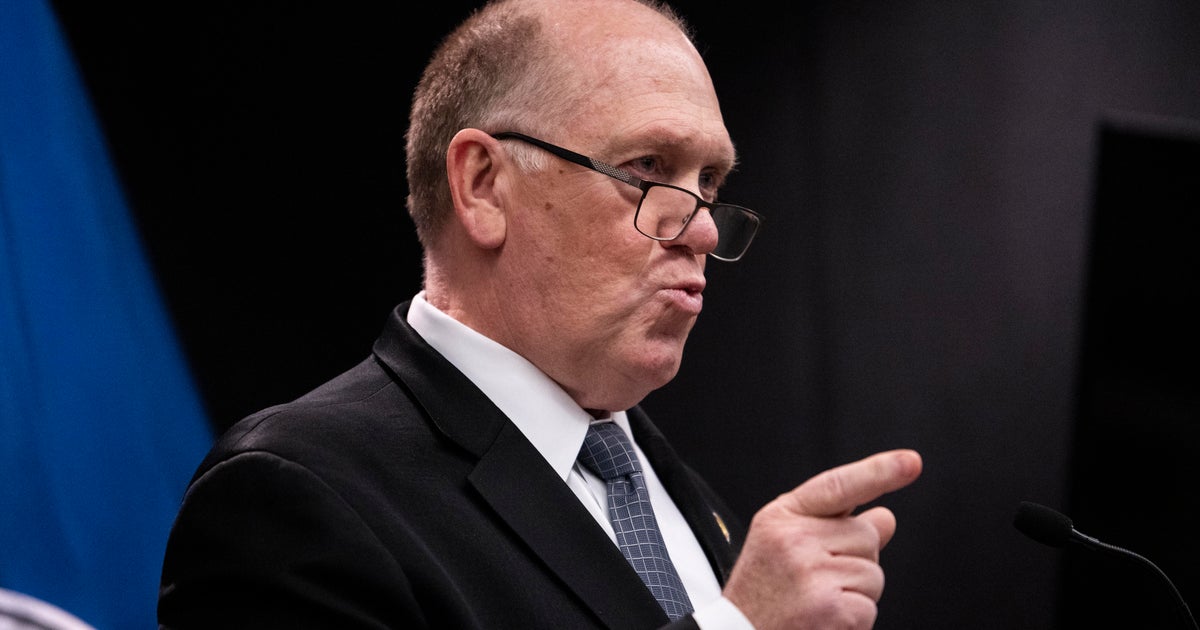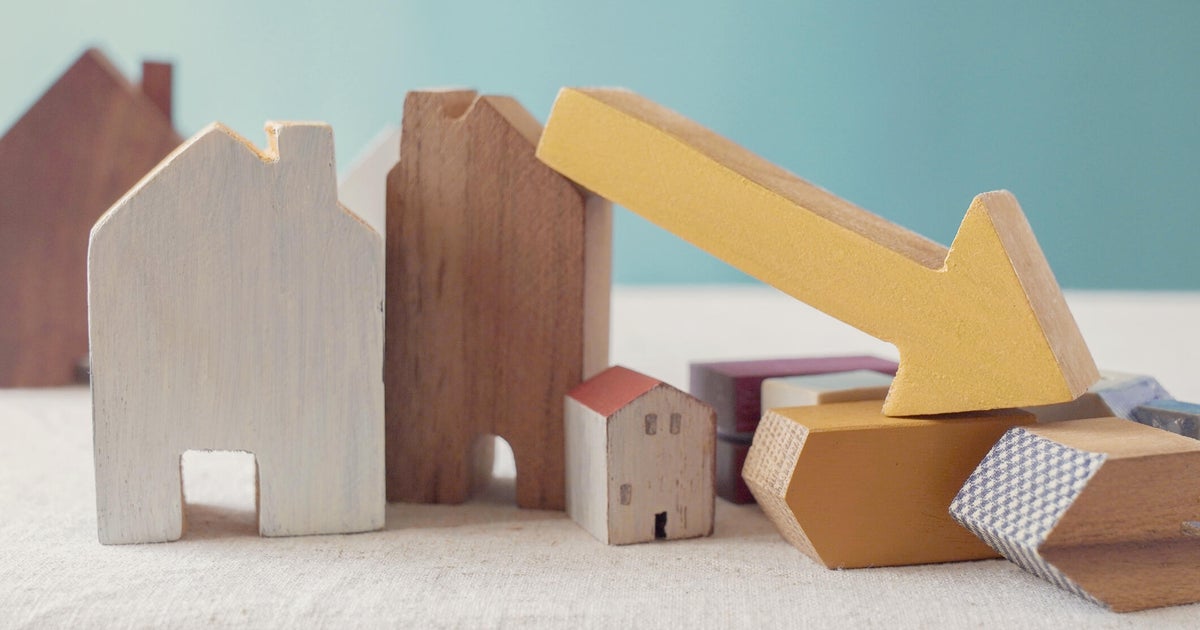Third stimulus check: Will you get a stimulus check — and how much?
President Joe Biden's $1.9 trillion coronavirus relief plan would provide a third round of federal stimulus checks to millions of Americans. Yet a new agreement between Mr. Biden and moderate Democratic Senators would limit the number of households that would qualify for the $1,400 checks, cutting off millions of other Americans who had been hoping for the stimulus money.
Under the pending deal, confirmed by CBS News, the $1,400 direct payments would begin to phase out at $75,000 for individuals, but would cut off eligibility for single people earning more than $80,000. For couples who file jointly, the phase-out will begin for those making $150,000 and end at $160,000.
The income phaseouts would likely cut off millions of households who qualified for the previous two rounds of stimulus checks because of their higher income limits. For instance, the first round of stimulus payments paid $1,200 to single people earning $75,000 or less, but phased out the payments until they cut off entirely for single taxpayers with incomes over $99,000 — or $19,000 higher than the new agreement.
The IRS said it sent 30 million payments to households earning more than $75,000 during the first round of stimulus checks. Under the new lower income cut-off, it's likely many of those households wouldn't qualify for the full $1,400 check.
Some lawmakers have argued for stricter eligibility for the third round of stimulus checks given economic data indicating many middle- and upper-income households are regaining their economic footing. But it's not likely to be a popular move with taxpayers, given that a new poll from Monmouth found a majority of respondents favorably view the $1,400 checks and see the money as off-limits from congressional efforts to reduce the payout.
"I hear, 'Let's get money to those who need it,' but there is no one in D.C. who could identify those families," said Claudia Sahm, an economist who has worked at the Federal Reserve and the Washington Center for Equitable Growth. "We're still in a place where everything is going to help."
Hardship remains widespread, although lower-income families have been more likely to experience income and job losses due to the pandemic. More than 1 in 3 adults said they had difficulties paying their bills in the last week of January, and more than 4 in 10 adults who live with children said the same thing, an analysis from the Center on Budget and Policy and Priorities.
Limiting upper-income households has drawn bipartisan support, with Democratic Senator Joe Manchin of West Virginia and Republican Senator Susan Collins of Maine working to block "upper income citizens" from the next round of stimulus checks. Notably, however, their plan didn't define "upper income." The measure would ensure that "the struggling families that need it most" would receive the checks, Collins had said.
The new agreement would decrease the number of Americans who would have been eligible for payments under the version of the bill passed by the House on Saturday. The House bill also phased out payments for individuals making more than $75,000 and couples making more than $150,000, but payments were capped at incomes of $100,000 and $200,000, respectively.
"Pockets of pain"
In a virtual event hosted by the New York Times last month, Treasury Secretary Janet Yellen advocated for Mr. Biden's stimulus plan, and pushed back against the notion of limiting the stimulus checks to fewer households.
"The truth is, there are pockets of pain that go beyond what can be reached in those highly targeted ways," Yellen said.
Yellen has previously argued that some government statistics aren't accurately reflecting the economic reality for millions of U.S. households during the pandemic.
"We have an unemployment rate that, if properly measured in some sense, is really close to 10%," Yellen told CNBC earlier this year. "In addition to over 9 million people unemployed, we have 4 million who've dropped out of the labor force, another 2 million who have seen reduced hours."
Data suggests that hardship remains elevated across the nation, almost a year since the pandemic shuttered the economy. People who lost their job during the pandemic were 2.6 times more likely to say they've burned through their savings, according to a survey from the Financial Health Network, a nonprofit that focuses on financial health and literacy.
Worries about food and housing insecurity are especially high among families of color. For instance, nearly 1 in 4 Black and Hispanic survey respondents said they have worried about paying their rent or mortgage since the pandemic started, compared with 1 in 7 White respondents, the survey found.
Are stimulus checks helping the economy?
The U.S. economy continues to struggle with higher-than-normal layoffs and other setbacks. Roughly 730,000 people filed for unemployment benefits in the week ended February 20, a drop of 111,000 from the previous week yet still higher than prior to the pandemic. New economic data released on February 17 indicates that the second stimulus check is working to stoke the economy, with retail sales jumping 5.3% in January, or five times higher than expected.
"Those outsized gains in big-ticket discretionary items suggests the $900 billion fiscal stimulus passed late last year is working as intended — with most Americans receiving $600 per person stimulus checks early in the month, while monthly unemployment insurance payments were increased," noted Michael Pearce, senior U.S. economist at Capital Economics, in a report.
"The economy remains weak, the jobs recovery has lost momentum, and there are nearly 10 million fewer jobs than in February of 2020," the Center on Budget and Policy Priorities in a February report. It added that millions should be helped by Mr. Biden's proposed stimulus package.
Here's what the experts are saying about the next stimulus check and who may be eligible.
Why are income limits an issue?
The first two government stimulus checks — $1,200 for the first round and $600 for the second round — also set income thresholds that made higher-income households ineligible for the payments. In both earlier rounds, single people who earned up to $75,000 and married couples who earned up to $150,000 received the full payments.
People with higher earnings got smaller payouts as their incomes rose, until the payments cut off entirely for higher-income families. In the first round, the phaseout stood at $99,000 for single people and $198,000 for married couples.
In the second round of stimulus, the phaseout for the $600 checks was slightly lower — $87,000 a year per single person and $174,000 per married couple. But that was a function of the smaller size of the checks, given that the law reduced both checks by 5% for every $100 earned above the income limits for full payments.
Recent economic research indicates that finances have stabilized for many middle- and higher-income families who have managed to work from home during the coronavirus pandemic. That is stirring debate among lawmakers and experts over whether the direct aid should be targeted toward lower-income households, who are more likely to feel the ongoing economic impact of COVID-19 and its spread.
Households earning under $78,000 annually quickly spent their second stimulus checks after receiving them in January, while those with incomes above that level socked away most of the money, according to research from the Opportunity Insights Economic Tracker, a nonprofit group led by Harvard economics professor Raj Chetty.
"Since the middle of June, the recession in jobs for higher-income households is over — employment has been just like it was before the pandemic" because their jobs can be done remotely, Michael Stepner, an economist with Opportunity Insights, told CBS MoneyWatch.
Are there new income limits to get a check?
Congress is still negotiating the bill, with the Senate set to take up Mr. Biden's $1.9 trillion coronavirus relief bill as early as Wednesday. Since the bill is not expected to attract many, or even any, Republican votes, all Democrats will need to support the bill in order for it to pass, giving moderate Democrats like Manchin leverage to make demands of the president and Senate leadership.
That explains why Mr. Biden would be willing to lower the income phaseout. But because the Senate version of the bill is likely to differ from the House version, which was passed last week, the legislation will have to go back to the House for another vote.
What do the experts say?
Some lawmakers have pushed back against limiting the payout to a smaller group of households, such as Senator Bernie Sanders, an independent from Vermont.
"It is absurd that some Democrats think we should tell a worker making $52,000 a year that they are 'too rich' and cannot get the full $2000 benefit we promised," he wrote last month on Twitter.
The ranks of adults experiencing financial hardship in January was little changed from December, despite the rollout of the second round of stimulus checks, according to Morning Consult economist John Leer. Most of the struggles were experienced by people earning less than $50,000 in annual income, he said.
A third round of $1,400 checks would allow 22.6 million adults to pay their expenses for more than four months without going into more debt or eating into any savings they may still have, his analysis found.
"Low-income households and parents were the most desperate to receive their second stimulus checks and are the most likely to need additional stimulus going forward," Leer wrote in his analysis. "According to a survey conducted at the beginning of February, Americans with annual household incomes under $50,000 already spent roughly 67% of money they received."
By comparison, households earning more than $100,000 spent about 50% of their stimulus checks, his analysis found.
When would I get a $1,400 check?
It's possible the checks could arrive as soon as mid- to late March, if the bill is passed by Congress and assuming the relief package directs another round of direct payments to households, analysts say.
Meanwhile, Democratic lawmakers have said they want to pass a new relief bill before the current $300 in weekly additional jobless aid expires on March 14.
Once the relief bill is passed, it must be signed by Mr. Biden. After that, the IRS would direct stimulus checks to eligible households. Based on past payment schedules, checks could arrive via direct deposit within a week of Mr. Biden signing the bill.
However, people who don't have banking accounts or payment information on file with the IRS would likely have to wait longer for paper checks or prepaid debit cards to arrive in the mail.
With reporting by the Associated Press.



